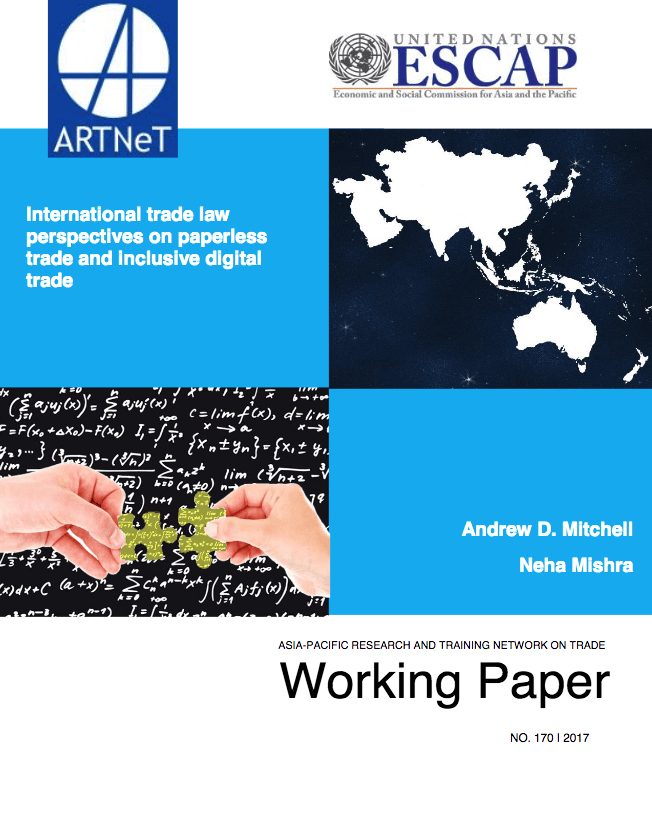International trade law perspectives on paperless trade and inclusive digital trade

Cross-border paperless trade is increasingly important to generate economic gains in a digitalised economy. Several developing and least developed countries will need to modernise their domestic laws and regulations to facilitate cross-border electronic transmissions, particularly to promote cloud computing and electronic payments. In recent trade agreements, trading partners have committed to deeper and more comprehensive provisions on electronic commerce, including adopting domestic lawson online consumer protection, spam and data protection, facilitating use of electronic signatures and authentication methods, promoting cooperation on electronic commerce issues, and facilitating cross-border data flows. The Trade Facilitation Agreement of the World Trade Organization (WTO) also supports various measures to facilitate cross-border paperless trade including facilitating online customs procedures and electronic payments. Further, many countries are also proposing reforms at the multilateral level by circulating proposals at the WTO to create trade rules relevant to the digital age.Such initiatives will support efforts in developing countries to implement an efficient and effective legal framework for electronic transactions. Simultaneously, to make digital trade more inclusive, developed countries should provide technical and financial assistance to developing countries and least developed countries in modernising their domestic legal framework applicable to digital trade.
